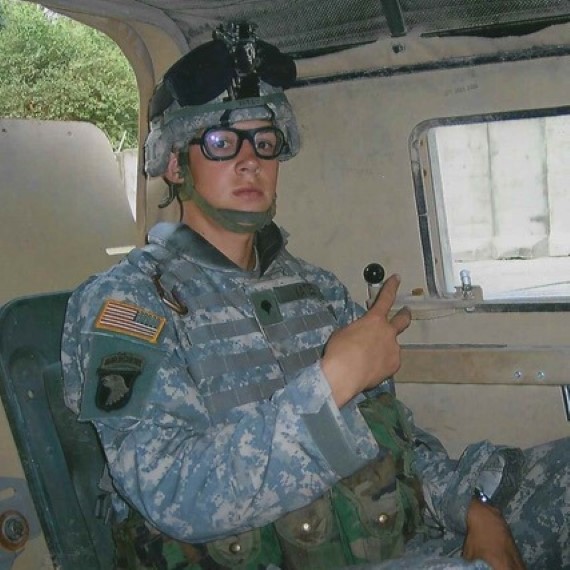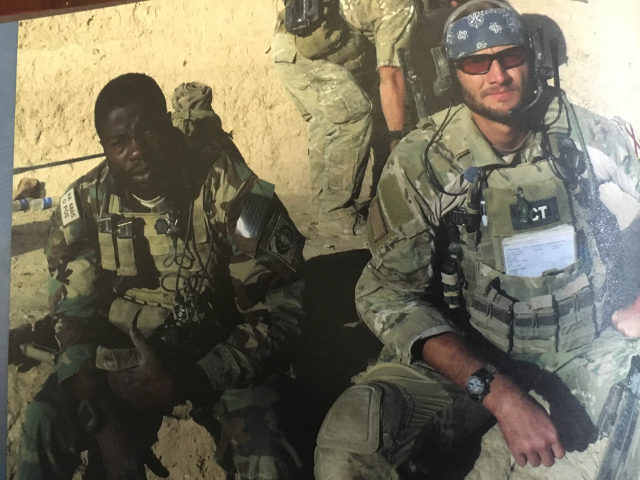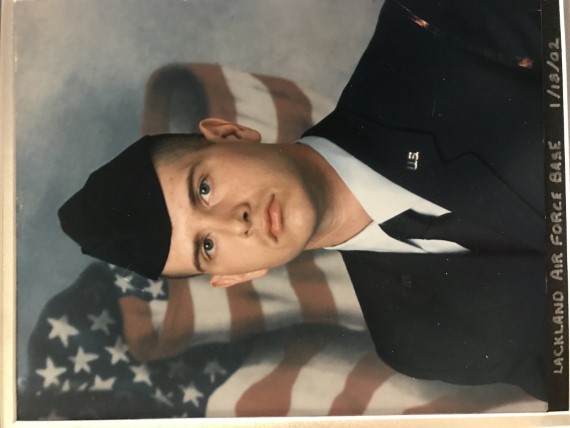Departing For Home one Final Time
By Colonel Lance Kittelson, Chaplain
In our unit's flight from Kuwait to Iraq a few months ago in the worst of the desert's summer heat, we'd filed into the back of a C-130, crammed cheek to jowl along with a couple pallets of cargo. The sweltering aircraft opened up in the rear of the airframe for cargo, which meant that the heat flooded inside. That day in June it was nearly 125 degrees, and with the addition of the four engines whining away and spewing forth heated drafts of Kuwaiti air, it was much hotter inside. Needless to say, it was pretty close to miserable, but then again that is what the Army, I believe, exists to do and do very well: teach people to live with and thrive in tough conditions.
Now, months later, I was headed back to Kuwait to visit some of our troops, and that called for a nighttime flight. Same aircraft, same conditions, only this time it was much more bearable temperature-wise. Plus, there was a somewhat different clientele on board.
There was one passenger… I didn't know the name by anything other than "HR." The civilian loading us on the plane said, as we loaded our bags and donned our helmets and protective "Improved Outer Tactical Vests" ("Flak Vest" in old Vietnam parlance), that anyone who was uncomfortable with HR aboard the aircraft could request to fly on another plane. No one did, as they had waited long enough for a flight out and knew the uncertainty of the military transport system.
Someone asked the inevitable question: "What is HR?" As a chaplain, I had it figured out, but many didn't. "HR", the civilian replied, "means 'Human Remains.'" We were flying with a casket aboard.
As a pastor, I've seen a lot of death and a multitude of caskets. I've ridden in too many hearses to count on the way to the cemetery. But this time was unique. I didn't know if it was a soldier or not. Sometimes civilian contractors die in accidents, have heart attacks, or are killed by enemy fire. I guess it didn't matter. In the eerie green light of the darkened aircraft, sitting on my web seating, I glanced back to see the glow off the stainless steel "transfer case" and wondered who back home was at this moment trying to cope as they were notified of their loss, tears streaming, with cries of anguish, desperately hoping, praying that it is somehow a mistake. In my thoughts, it no longer mattered if "HR" was a civilian or a soldier. Death had come to whoever was lying before us in that C-130.
Because of the HR, we didn't go straight to our final destination. We first stopped at the Kuwait City Airport, where the casket would be transferred to the military mortuary-affairs personnel for processing on their final flight across the oceans to home. An American flag hung from the ceiling of the aircraft as everyone, civilian and soldier alike, was asked by the crew to file off the aircraft and form an honor guard for movement to the awaiting cargo truck set to receive the body. In the 3:30 a.m. darkness of the runway parking ramp, a young airman called everyone to attention as six airmen and soldiers lifted the casket and moved from the C-130 to the truck. There was no fidgeting, no complaining at the delay in the flight, just Americans standing in silent respect, civilians with hands over their hearts, soldiers at attention. They stood silently, not for HR, but for a human being, a fellow American, a child of God who had departed this world all too soon in wartime, and whose remains were now about to depart for home one final time.
If there is a lesson in that early morning flight, it is in the dignity and respect those young troops showed for the HR, that this was no mere job for them. The fallen are Americans, and no matter who they were in life or where they were from in death, they would be treated with the greatest and utmost respect, as the fallen deserve. Strangely, that is a comfort for soldiers, knowing that if their time comes, "No Soldier will be left behind," as one of the most important core values of the Army states – that somehow, in some way, sometime, someone will see that they get home one last time.
May God bless that flight crew in that early morning, those young mortuary-affairs troops doing a hard, solemn job with the greatest of dignity and respect, and those Soldiers and civilians who stood at attention in the early morning darkness to render the respect of Americans for an American "HR" whose name is known to God and a grieving family back home.
Reprinted with permission from America's Heroes: Stories From Today's Armed Forces, © Whitman Publishing, LLC. All Rights Reserved.





